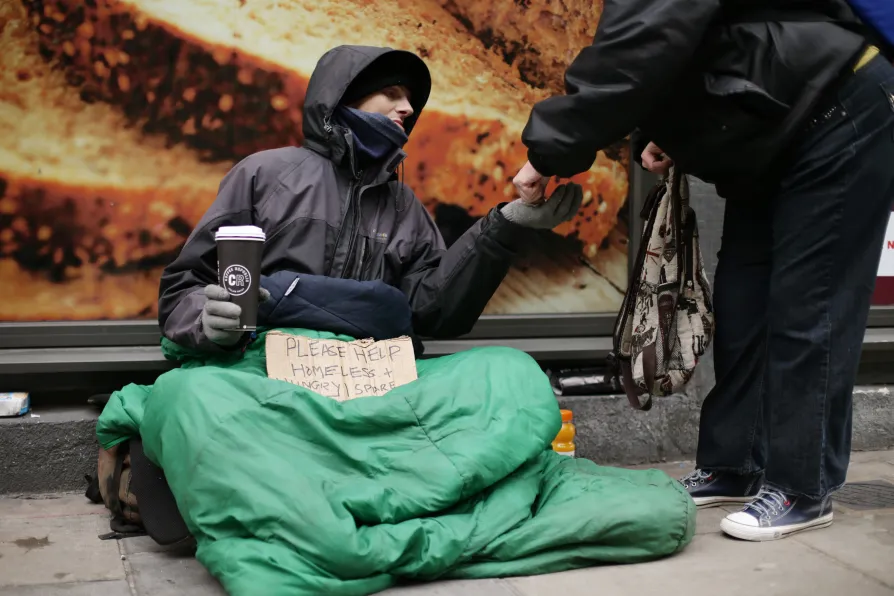
 A homeless man, holding a sign reading 'Please help, homeless and hungry' in Victoria, London
A homeless man, holding a sign reading 'Please help, homeless and hungry' in Victoria, London
NEARLY 300,000 individuals and families faced severe homelessness in England last year, a figure campaigners have branded a “national disgrace.”
The report, by homelessness charity Crisis, found that the number of people forced to sleep on the streets and unsuitable temporary accommodation had risen by 21 per cent since 2022.
It said that 70 per cent of England’s councils had seen an increase in people approaching them for homelessness assistance in the last year.
The councils cited a lack of affordable housing and insufficient welfare support as fuelling the crisis and forcing them to shell out mass sums of money on temporary accommodation.
Councils spent an eye-watering £732 million on the most unsuitable forms of emergency accommodation, such as bed and breakfast hotels, in 2023/24.
Crisis is calling for the housing benefit to be boosted in the upcoming Autumn Budget so it is in line with the true cost of private rents.
The charity is also urging ministers to fix gaps in support services, with homelessness resulting from discharges from hospitals, prisons and other institutions increasing by 22 per cent in the last year.
Acorn political officer Anny Cullum called the findings a “national disgrace,” adding: “We need urgent action to turn this around.
“That means a mass programme of building genuinely affordable social housing, real rent controls to stop people being priced out of their homes, and a housing system that truly puts people before profit.”
Earlier this year, the government committed £39 billion towards social and affordable homes, but just last month cut affordable housing targets in London from 35 per cent to 20 per cent.
Jae Vail, spokesperson for the London Renters Union, said: “Homelessness isn’t inevitable — it’s a political choice.
“Politicians chose to scrap rent controls, sell off public housing, and hand our cities to private developers.
“The government can fix this now by introducing rent controls and investing in public housing.”
The government said it is investing more than £1bn in homelessness services and launching a cross-government homelessness strategy.
A spokesperson said it is “accelerating efforts” to tackle the root causes and ensure support is in place for those most at risk, abolishing Section 21 evictions through the Renters Rights Act, and expanding access to safe accommodation.
Ben Twomey, chief executive of Generation Rent, said: “The new Renters’ Rights Act will help prevent unfair evictions from forcing people from their homes, but without action to limit rises, progress risks being undone.
“The government must slam the brakes on soaring rents to allow renters a chance to put down roots in our communities and live stable lives without fear of being priced out of our homes.”










